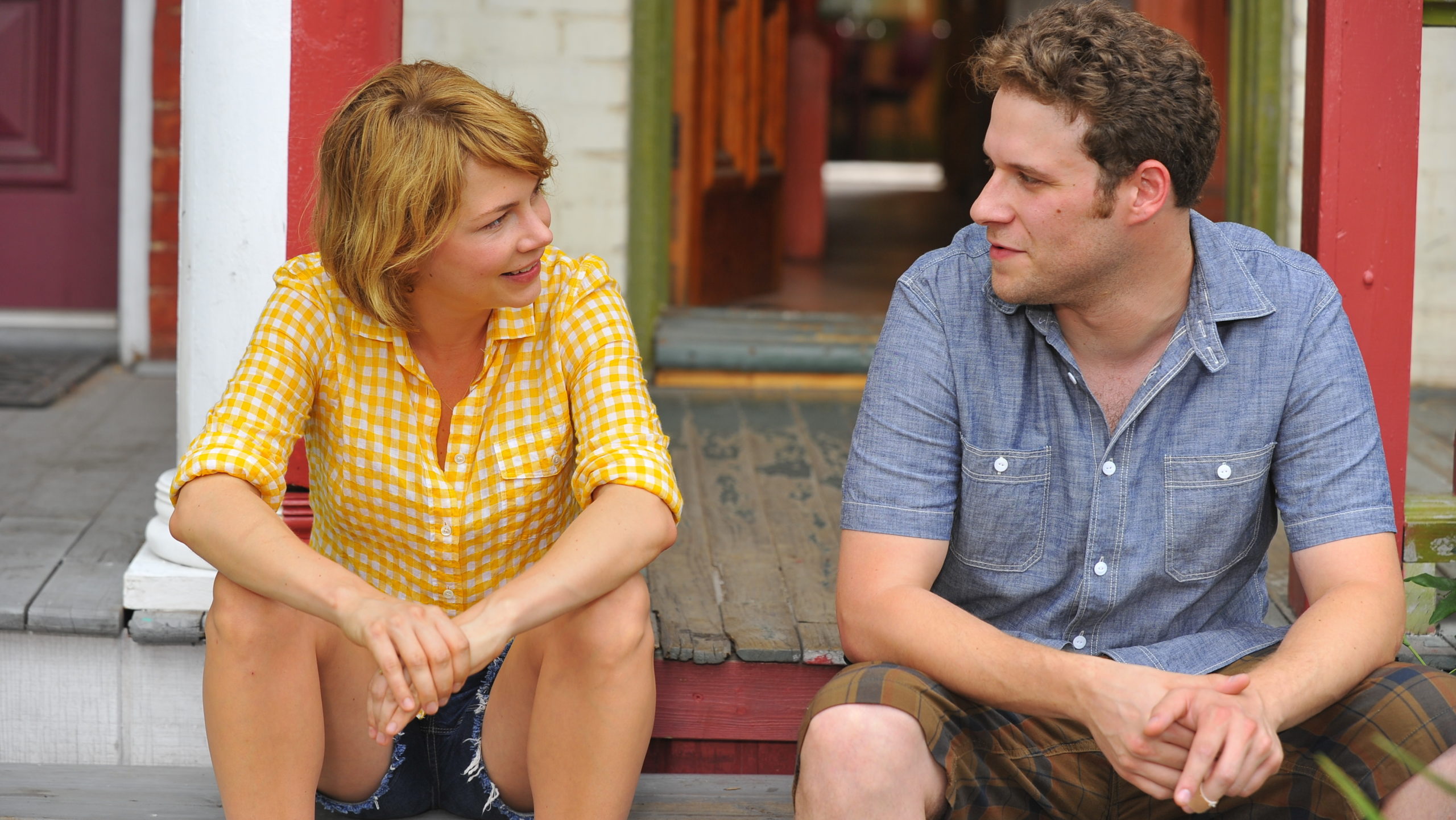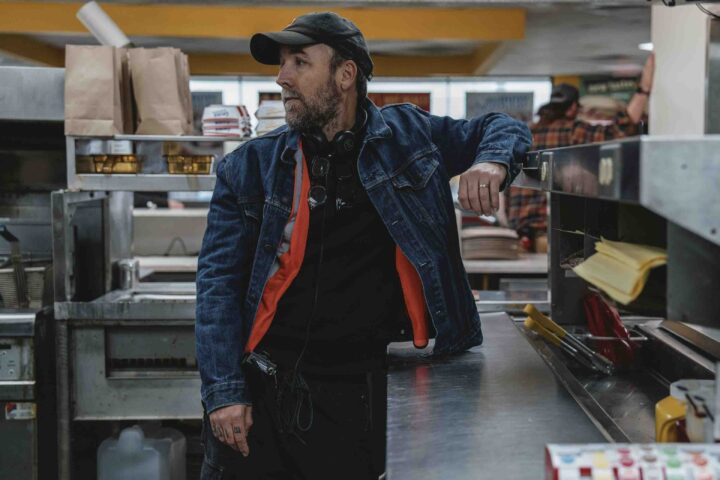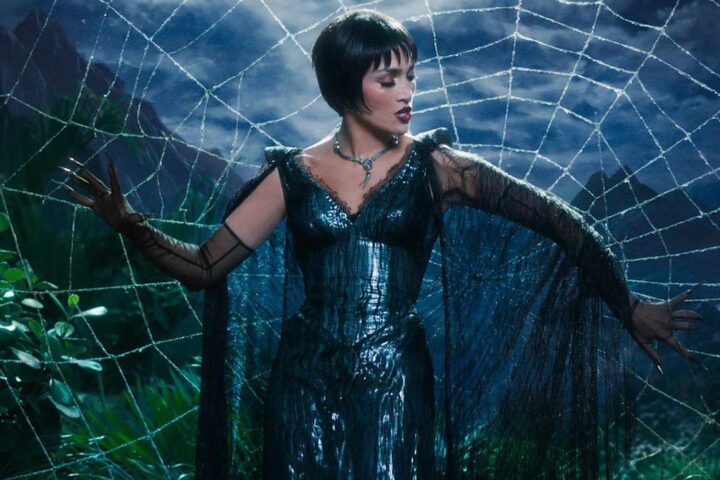Michelle Williams has such a delicate, cherubic emotionality, fully writ on her peaches and cream cheeks, always dancing on the edge of great vulnerability—she really has emerged as perhaps one of the very best of her young generation. Her tour-de-force as Marilyn Monroe in last year’s My Week with Marilyn was a performance for the books, and one that, in another year, could have easily snagged the Oscar.
Those qualities go a long way in gaining our sympathies during Sarah Polley’s new drama, Take This Waltz, in which Williams takes on the role of a bored young wife who entertains fantasies—and then realities—of starting anew with a handsome neighbor. It is a moving, insightful film about ennui, how we sometimes choose to follow our heart’s desire and how we must live with the consequences.
Margot (Williams) is a freelance writer from Toronto on assignment in Nova Scotia when she encounters Daniel (Luke Kirby) in a classic “meet cute” set-up—he happens to be in the same tour group and then in the same seat next to her on the plane home. Immediately there’s a spark between them, and he sees right through her ruse of using a wheelchair to make her flight connection. In a somewhat stilted scene, she explains her fear of not making connections; of being “in between” things.
The pair shares a cab into the city and it turns out that Daniel, a rickshaw operator (yes, actually) and artist, lives directly across the street from Margot, though they’ve never met. Upon their parting she announces that she’s married. “Too bad,” he replies, and so sets up a spark of attraction where Margot writes in front of her window each day, hoping to see the handsome stranger.
Margot is married to Lou (effortlessly played by Seth Rogen with a lot of charm and free from his comic bravado), a cookbook author whose latest creation includes every way on earth one might cook chicken, their nightly meal, and he spends more time tending to his ingredients than Margot, who feels neglected, and in a knowing scene approaches him affectionately only to be rebuffed. “Do you know how much courage that takes?” she asks, and he is clearly clueless.
Yet Polley doesn’t take the easy way out by offering us a clear picture of a bad marriage. If fact, Margot and Lou have a pretty good one—they get along well, clearly like each other, talk baby talk in bed, are comfortable enough to use the toilet in front of each other and have a loving group of extended family and friends, including his sister, a recovering alcoholic played with authority by Sarah Silverman, who delivers the film’s best line when she goes off the wagon late in the picture.
Margot slowly grows closer to Daniel in a series of scenes flush with real romance, including a scene of erotic verbal foreplay in a restaurant and a lovely underwater dance in a public pool. In these moments she comes alive, and in her moments with her husband, she closes back down, and Williams is deftly charts transitions.
While their connection remains chaste, she has love in her heart for Daniel, complicating matters when the two men finally meet during an awkward moment on Lou and Margot’s anniversary, where he brings them, in the rickshaw, to a local cinema. Their subsequent dinner conversation, about not having to make conversation, is screenplay mastery.
Take this Waltz could have been a crass comedy with broadly drawn “good” and “bad” characters, but it’s too smart for that. None of the three leads are painted as saintly or villainous, and Margot’s seduction is never judged as right or wrong, though the picture ultimately does have a clear point of view on the pursuit of passion and its consequences.
What is most memorable in this movie is the way Polley and Williams meticulously chart the small beats of a relationship and how intimacy inevitably dies a thousand little deaths, how a marriage becomes an arrangement between best friends, how being comfortable with someone replaces being in love and how when we realize these things, it’s too late.
“New things become old,” we are told in one of the film’s most daring scenes, where Williams and Silverman both perform full-frontal nude in a shower room with group of aging women while discussing the hassles of shaving legs to appear beautiful for men.
Yet during a secret date set on the amusement park ride The Scrambler, as Margot and Daniel share a wordless few minutes gazing at each other, the world actually swirls around them and they are hooked. This scene will be repeated later to bittersweet effect.
(SPOILERS) I was certain about 90 minutes into the picture that it was concluding, before Polley departs with a final act that is messy and appropriately so, given Margot’s decision to walk out on her marriage and take up with Daniel. In a lovely montage, she conveys passion, love, sex, gradual boredom and a knowing verisimilitude as Margot realizes, too late, that what was missing in her marriage wasn’t her husband.
Only in its final stretches does Take this Waltz reveal a sad and true agenda in this well-written character study by writer-director Polley, the Canadian actress turned filmmaker who gave Julie Christie a similar showcase in her 2006 debut Away from Her, about a woman suffering from Alzheimer’s, based on a story by Alice Munro.
In a way, Take this Waltz is a cautionary movie about the drug of fleeting passion, how we abandon pragmatism for the rush of shiny, new things when we should know better, even when we can’t help ourselves. It’s a film that has it both ways, seducing us with the thrill of spinning deliriously into love and then making us, and Margot, pay the price.
Heartbreaking.
3 1/2 stars.



